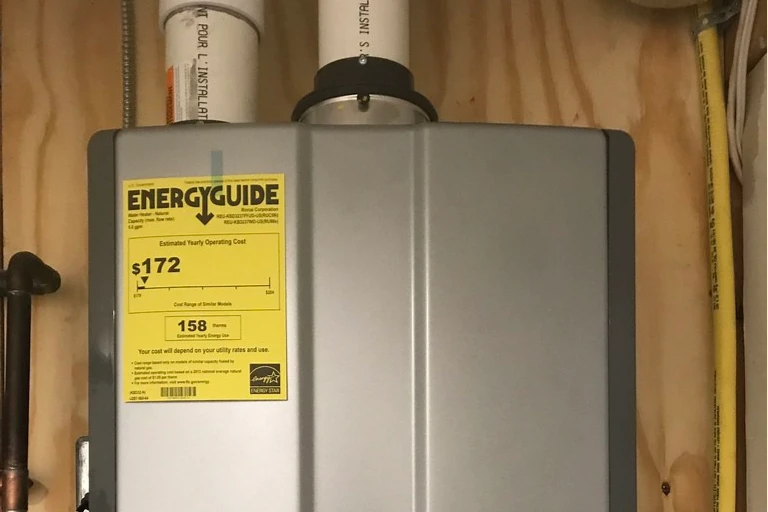Advantages of a Tankless Heater
Energy Efficiency
One of the key benefits of tankless water heaters is their energy efficiency. Traditional water heaters constantly heat and reheat water in the storage tank, even when not in use, resulting in standby heat loss. Tankless water heaters, on the other hand, only heat water when needed, reducing energy consumption and lowering utility bills. With a tankless water heater, you can save up to 30% on your energy costs compared to a traditional water heater.
Endless Hot Water
Have you ever experienced the frustration of running out of hot water in the middle of a shower? With a tankless water heater, this will be a thing of the past. Tankless water heaters provide a continuous supply of hot water, ensuring that you never run out no matter how many people are using hot water at the same time. Whether you have a large family or frequently have guests staying over, a tankless water heater can meet your hot water demands without compromise.
Long Lifespan
Tankless water heaters are known for their durability and longevity. While traditional water heaters typically last around 10-15 years, tankless water heaters can last up to 20 years or more with proper maintenance. Although the initial cost of a tankless water heater may be higher than that of a traditional water heater, the longer lifespan makes it a cost-effective investment in the long run.
Reduced Risk of Water Damage
Traditional water heaters with storage tanks are susceptible to leaks, which can cause significant water damage to your home. With a tankless water heater, the risk of leaks is minimized as there is no storage tank that can burst or develop leaks over time. This provides peace of mind and eliminates the need for costly repairs or water damage restoration.
In conclusion, tankless water heaters offer a range of benefits including energy efficiency, endless hot water supply, space-saving design, long lifespan, and reduced risk of water damage. By upgrading to a tankless water heater, you can enjoy these advantages while enhancing the comfort and convenience of your home.
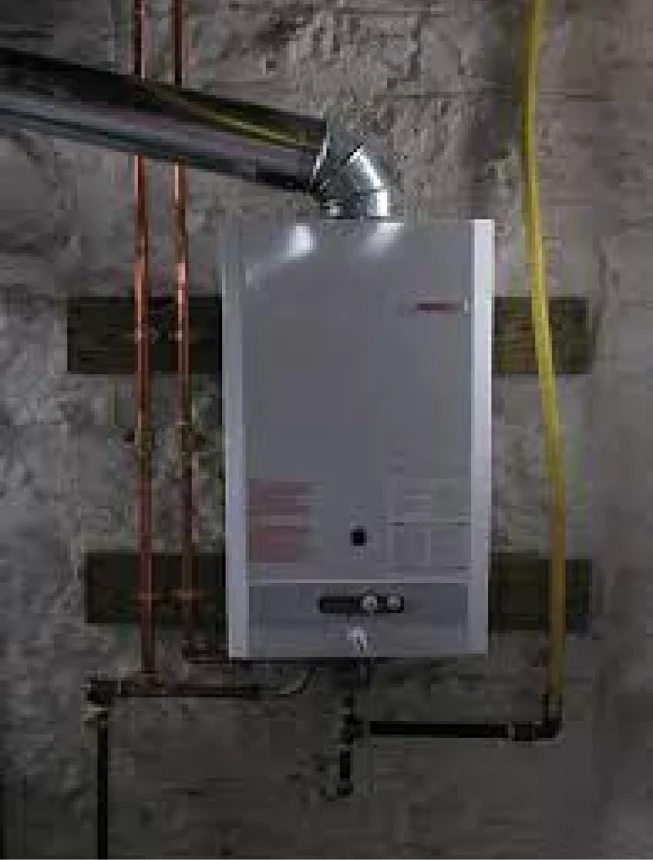
Tankless Water Heater vs. Traditional Water Heater
When it comes to choosing between a tankless water heater and a traditional water heater with a storage tank, there are several factors to consider. Each type of water heater has its own advantages and limitations. Let’s compare the two to help you make an informed decision.
Hot Water Supply
Traditional water heaters store and heat a certain amount of water in a storage tank, which means there is a limit to the amount of hot water available at any given time. If you have a large household with high hot water demands, you may run out of hot water with a traditional water heater. Tankless water heaters, on the other hand, provide a continuous supply of hot water as it is heated on-demand. This makes tankless water heaters ideal for households with multiple bathrooms or high hot water usage.
Energy Efficiency
Tankless water heaters are more energy-efficient compared to traditional water heaters. Traditional water heaters constantly heat and reheat water in the storage tank, resulting in standby heat loss. Tankless water heaters only heat water when needed, significantly reducing energy consumption and lowering utility bills. If energy efficiency is a priority for you, a tankless water heater is the way to go.
Space Requirements
Traditional water heaters with storage tanks can take up a significant amount of space in your home. They require a dedicated space such as a utility closet, basement, or garage. Tankless water heaters, on the other hand, are compact and can be installed on walls or under sinks, saving valuable space in your home. If you have limited space or want to maximize your usable space, a tankless water heater is a great option.
Installation and Maintenance
Installing a traditional water heater is relatively straightforward, but it requires a storage tank, which can be heavy and bulky. Tankless water heaters, although compact, require professional installation due to their specific requirements, such as proper venting and gas line sizing. Additionally, tankless water heaters may require periodic maintenance, such as descaling, to ensure optimal performance. Consider the installation and maintenance requirements when making your decision.
Cost
Traditional water heaters with storage tanks generally have a lower upfront cost compared to tankless water heaters. However, it’s important to consider the long-term cost savings of a tankless water heater due to its energy efficiency and longer lifespan. While the initial investment may be higher for a tankless water heater, it can save you money on energy bills and replacement costs over time.
In conclusion, the choice between a tankless water heater and a traditional water heater depends on your specific needs and preferences. Consider factors such as hot water supply, energy efficiency, space requirements, installation and maintenance, and cost to determine which option is best for you.
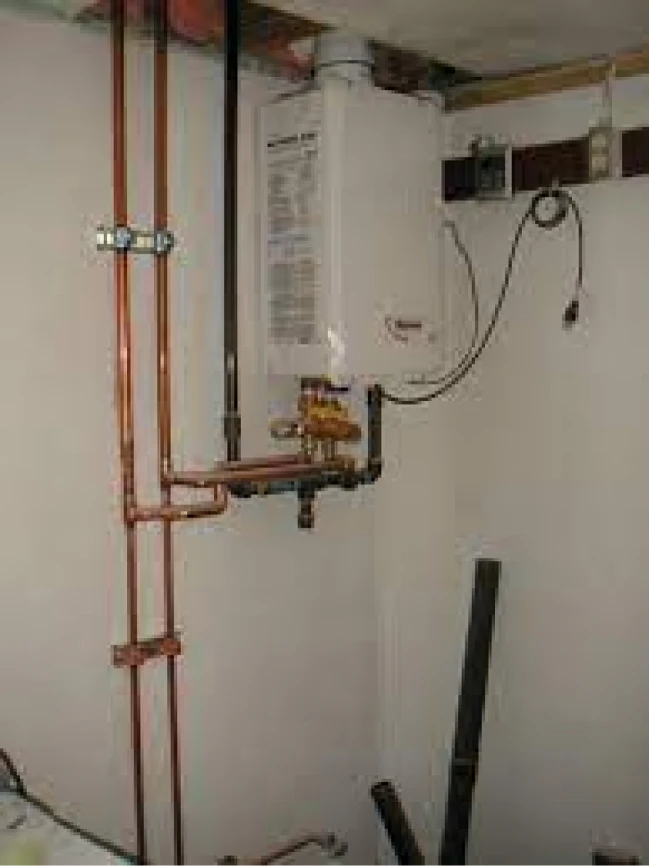
Factors to Consider When Choosing a Tankless Water Heater
Choosing the right tankless water heater for your home involves considering several factors to ensure that it meets your specific needs and requirements. Here are some important factors to consider when selecting a tankless water heater:
Hot Water Demand
The first step in choosing a tankless water heater is determining your hot water demand. Consider the number of bathrooms and fixtures in your home that require hot water, as well as the peak hot water usage. This will help you determine the flow rate and ensure that the tankless water heater can meet your hot water needs.
Fuel Type
Tankless water heaters are available in different fuel types, including electric, natural gas, and propane. Consider the availability and cost of the fuel source in your area when selecting a tankless water heater. Electric tankless water heaters are generally easier to install and have lower upfront costs, while gas tankless water heaters offer higher flow rates and are more suitable for larger households.
Size and Capacity
Tankless water heaters come in various sizes and capacities to accommodate different hot water demands. The size of the tankless water heater should be based on the number of bathrooms and fixtures in your home, as well as the required flow rate. It’s important to choose a tankless water heater that can provide sufficient hot water without compromising performance.
Energy Efficiency
Energy efficiency is an important consideration when choosing a tankless water heater. Look for models that are ENERGY STAR certified, as they meet strict energy efficiency guidelines. ENERGY STAR certified tankless water heaters can help you save on energy costs and reduce your carbon footprint.
Warranty
Check the warranty offered by the manufacturer before purchasing a tankless water heater. A longer warranty period indicates the manufacturer’s confidence in the product’s quality and reliability. Consider the warranty coverage for both parts and labor, as well as any additional warranty options available.
Cost
Lastly, consider your budget when choosing a tankless water heater. While tankless water heaters generally have a higher upfront cost compared to traditional water heaters, they offer long-term energy savings and a longer lifespan. Evaluate the overall value and return on investment of the tankless water heater to make an informed decision.
By considering these factors, you can select a tankless water heater that is the right fit for your home, ensuring a continuous supply of hot water while maximizing energy efficiency and cost-effectiveness.

The Installation Process of a Tankless Water Heater
Installing a tankless water heater requires professional expertise to ensure proper installation and optimal performance. Here is an overview of the installation process of a tankless water heater:
Site Assessment
Before installation, a qualified technician will assess the site where the tankless water heater will be installed. They will consider factors such as the location, available space, fuel source, and existing plumbing connections. This assessment helps determine the best location for the tankless water heater and any necessary modifications or upgrades required.
Sizing and Selection
Based on the hot water demand of your home, the technician will determine the appropriate size and capacity of the tankless water heater. They will consider factors such as the flow rate, temperature rise, and number of fixtures to ensure that the tankless water heater can meet your hot water needs.
Gas Line Sizing and Venting
If you have opted for a gas tankless water heater, the technician will ensure that the gas line is properly sized to accommodate the tankless water heater’s fuel requirements. They will also evaluate the venting system to ensure proper exhaust of combustion gasses.
Water and Gas Line Installation
The technician will install the necessary water and gas lines to connect the tankless water heater to the existing plumbing system. This involves cutting and soldering copper pipes, as well as connecting the gas line with approved fittings.
Electrical Connection
If you have chosen an electric tankless water heater, the technician will ensure that the electrical connection meets the manufacturer’s requirements. They will connect the tankless water heater to the electrical panel and ensure proper grounding.
Condensate Drain Installation
In some cases, tankless water heaters produce condensate that needs to be drained properly. The technician will install a condensate drain line to ensure that any condensate is safely disposed of.
Testing and Start-Up
Once the tankless water heater is installed, the technician will test the system to ensure proper operation and performance. They will check for any leaks, adjust the temperature settings, and verify that hot water is being delivered consistently.
Customer Education
Before completing the installation, the technician will provide you with information on how to operate and maintain the tankless water heater. They will explain any specific features or controls and answer any questions you may have.
By following a professional installation process, you can ensure that your tankless water heater is installed correctly and functions optimally, providing you with a continuous supply of hot water and maximizing energy efficiency.
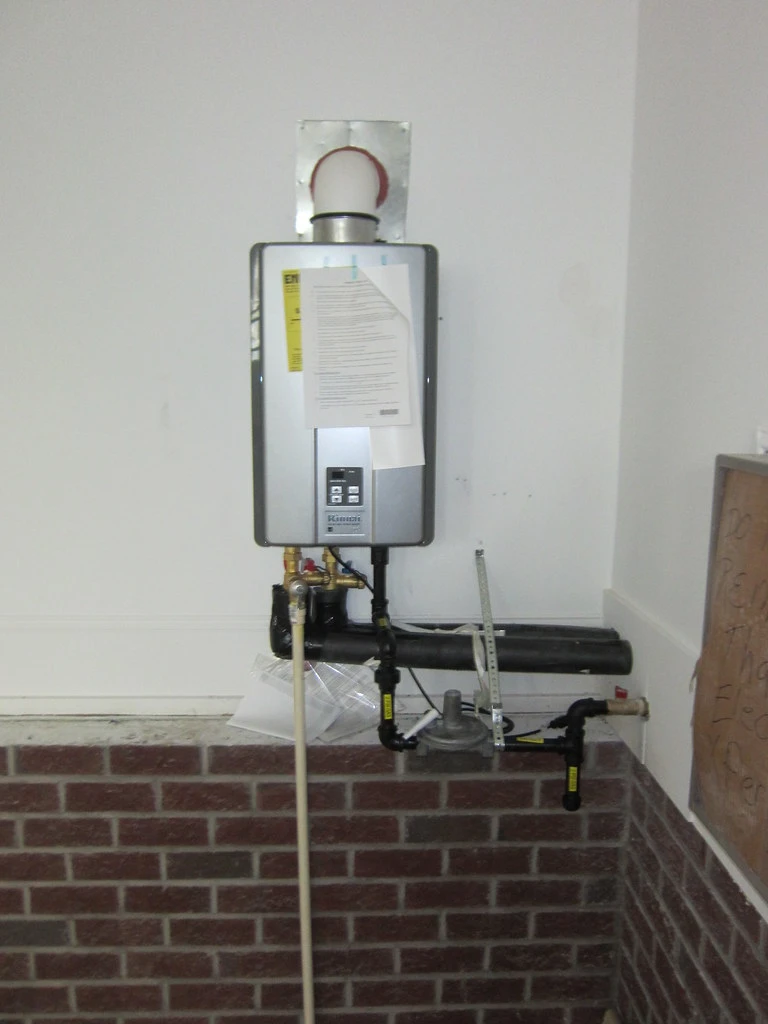
San Antonio Tankless Heater Installation Services
When it comes to San Antonio tankless heater installation services, o5 Plumbing is the name you can trust. With our extensive experience and expertise in tankless water heaters, we provide hassle-free installation services that are tailored to meet your specific needs.
At o5 Plumbing, we understand that every home is unique, and we take the time to assess your hot water demands and recommend the most suitable tankless water heater for your home. Our team of skilled technicians is trained to handle all aspects of tankless water heater installation, ensuring a seamless and efficient process from start to finish.
We work closely with you to understand your requirements and provide personalized solutions that fit your budget and preferences. Whether you need a tankless water heater for a small apartment or a large household, we have the knowledge and expertise to guide you through the selection and installation process.
Our commitment to quality extends beyond installation. We only work with reputable manufacturers to ensure that you receive a reliable and durable tankless water heater that will provide years of trouble-free service. Additionally, our technicians stay up-to-date with the latest advancements in tankless water heating technology, allowing us to deliver the most efficient and cost-effective solutions to our valued customers.
When you choose o5 Plumbing for your San Antonio tankless heater installation, you can expect: professional and courteous technicians who prioritize your satisfaction, expert advice and guidance throughout the installation process, high-quality tankless water heaters from trusted manufacturers, and attention to detail and a commitment to excellence. Don’t settle for outdated and inefficient water heating systems. Trust o5 Plumbing for a San Antonio tankless heater installation that will enhance your comfort and convenience while reducing your energy bills. Contact us today and let us transform your home’s hot water system.
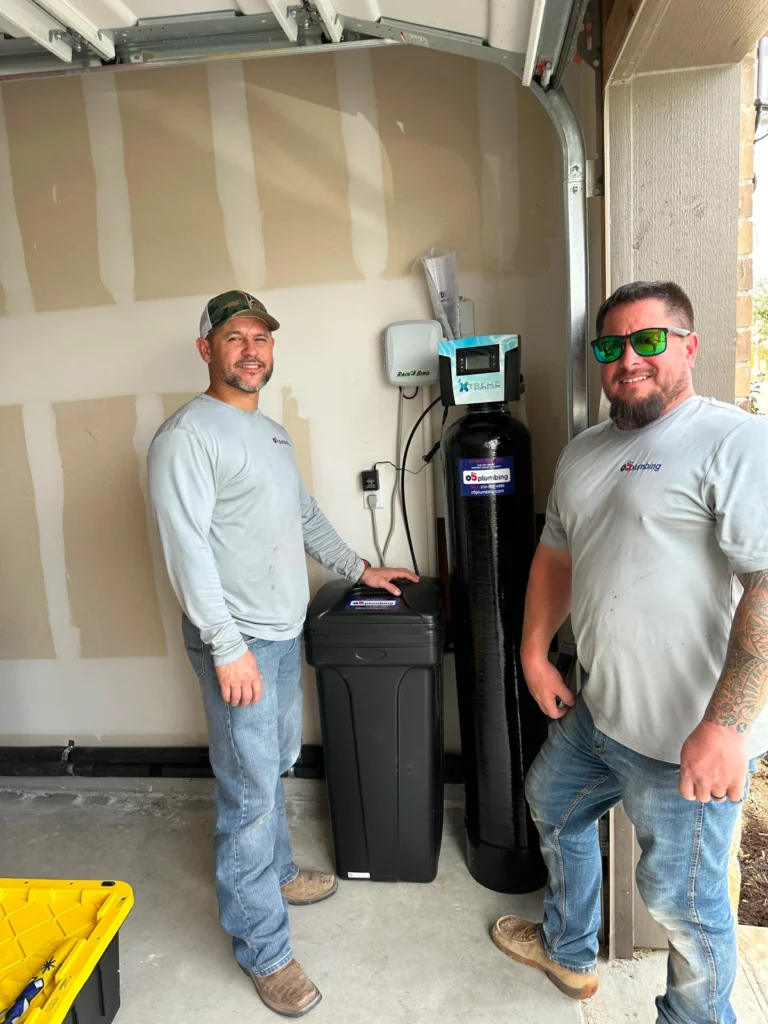
Frequently Asked Questions
How does a tankless water heater work?
Tankless water heaters heat water directly as it flows through the unit using heating elements or a gas burner. When a hot water tap is turned on, cold water enters the unit, and the heating elements or burner quickly heat the water to the desired temperature before it is delivered to the faucet.
Can a tankless water heater provide enough hot water for my entire home?
Yes, tankless water heaters can provide enough hot water for the entire home, depending on the unit’s size and capacity. It’s important to choose a tankless water heater that can meet your hot water demand by considering factors such as the number of bathrooms and fixtures in your home.
Are tankless water heaters more expensive to install than traditional water heaters?
Tankless water heaters generally have a higher upfront cost compared to traditional water heaters. However, they offer long-term energy savings and a longer lifespan, making them a cost-effective investment in the long run.
Do tankless water heaters require regular maintenance?
Yes, tankless water heaters require periodic maintenance to ensure optimal performance. This may include descaling to remove mineral deposits, checking and cleaning the burner or heating elements, and inspecting the venting system. Consult the manufacturer’s guidelines for specific maintenance requirements.
Can I install a tankless water heater myself?
Installing a tankless water heater requires professional expertise to ensure proper installation, safety, and optimal performance. It is recommended to hire a qualified technician for the installation to avoid potential issues and ensure warranty coverage.
How long do tankless water heaters last?
Tankless water heaters have a longer lifespan compared to traditional water heaters. With proper maintenance, tankless water heaters can last up to 20 years or more, whereas traditional water heaters typically last around 10-15 years.
Are tankless water heaters suitable for well water?
Tankless water heaters can be used with well water, but it’s important to consider the water quality and potential issues such as high mineral content or sediment. Consult a water treatment specialist to ensure that the tank

